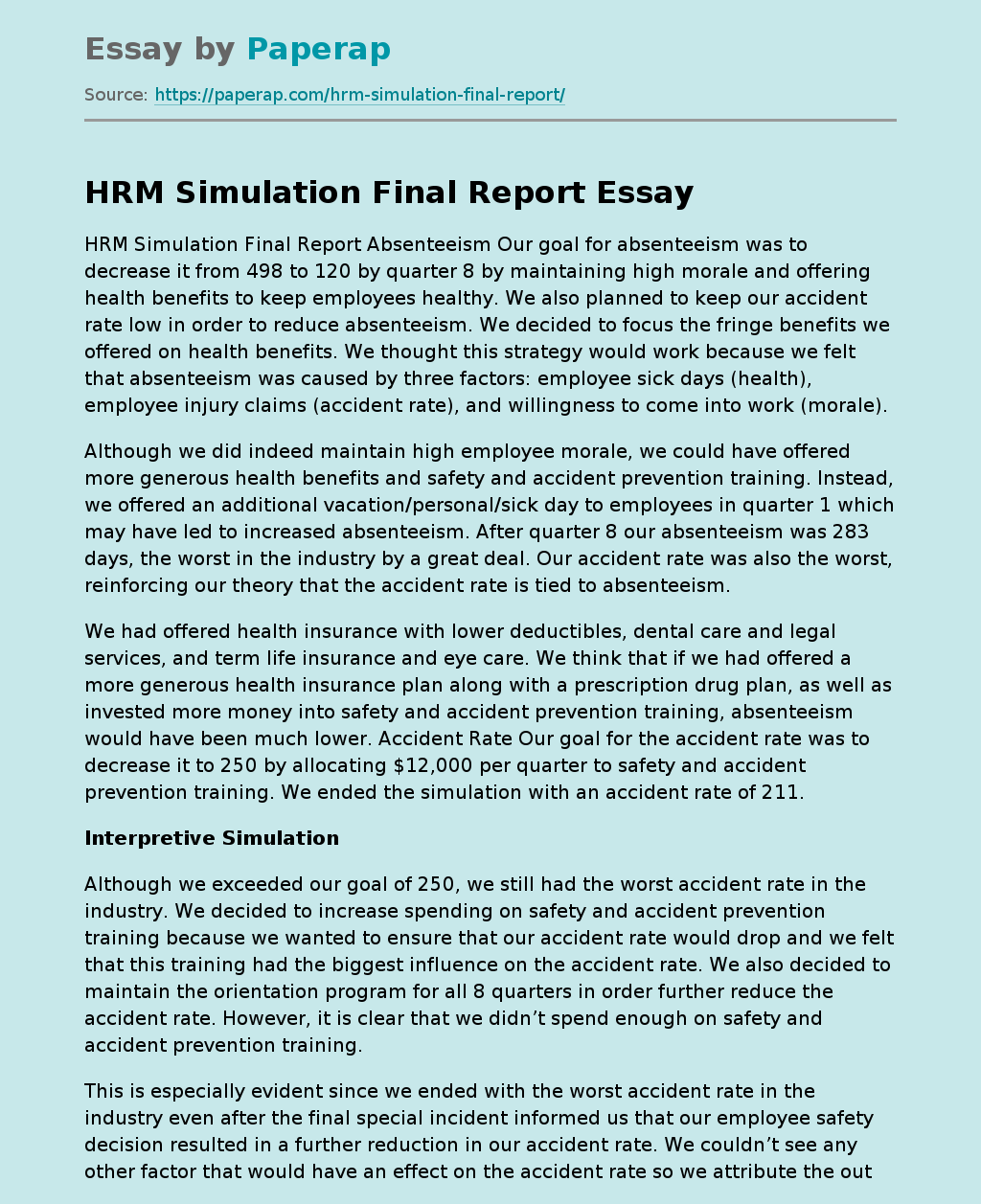HRM Simulation Final Report
HRM Simulation Final Report Absenteeism Our goal for absenteeism was to decrease it from 498 to 120 by quarter 8 by maintaining high morale and offering health benefits to keep employees healthy. We also planned to keep our accident rate low in order to reduce absenteeism. We decided to focus the fringe benefits we offered on health benefits. We thought this strategy would work because we felt that absenteeism was caused by three factors: employee sick days (health), employee injury claims (accident rate), and willingness to come into work (morale).
Although we did indeed maintain high employee morale, we could have offered more generous health benefits and safety and accident prevention training. Instead, we offered an additional vacation/personal/sick day to employees in quarter 1 which may have led to increased absenteeism. After quarter 8 our absenteeism was 283 days, the worst in the industry by a great deal. Our accident rate was also the worst, reinforcing our theory that the accident rate is tied to absenteeism.
We had offered health insurance with lower deductibles, dental care and legal services, and term life insurance and eye care. We think that if we had offered a more generous health insurance plan along with a prescription drug plan, as well as invested more money into safety and accident prevention training, absenteeism would have been much lower. Accident Rate Our goal for the accident rate was to decrease it to 250 by allocating $12,000 per quarter to safety and accident prevention training. We ended the simulation with an accident rate of 211.
Interpretive Simulation
Although we exceeded our goal of 250, we still had the worst accident rate in the industry. We decided to increase spending on safety and accident prevention training because we wanted to ensure that our accident rate would drop and we felt that this training had the biggest influence on the accident rate. We also decided to maintain the orientation program for all 8 quarters in order further reduce the accident rate. However, it is clear that we didn’t spend enough on safety and accident prevention training.
This is especially evident since we ended with the worst accident rate in the industry even after the final special incident informed us that our employee safety decision resulted in a further reduction in our accident rate. We couldn’t see any other factor that would have an effect on the accident rate so we attribute the outcome to a lack of spending on safety and accident prevention training. Grievances Our goal for grievances was to reduce them to 15 by the end of the 8th quarter by allocating money to grievance procedures.
We achieved this goal by finishing the simulation with a grievance value of 14. This was the best grievance value in the industry and we believe that we achieved this because of a close relationship between grievances and employee morale. Since our morale was also the highest in the industry, we feel that this is indeed the case. Employees who have high morale will have less to complain about and employees who have little to complain about will have higher morale.
HRM Simulation Final Report. (2019, Dec 05). Retrieved from https://paperap.com/hrm-simulation-final-report/

